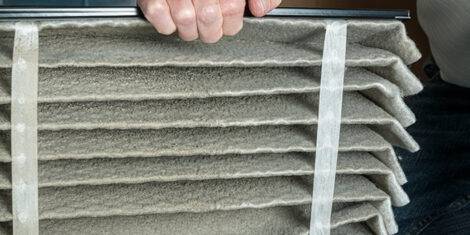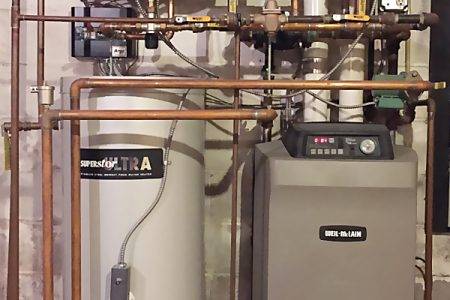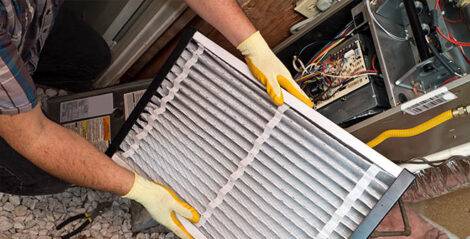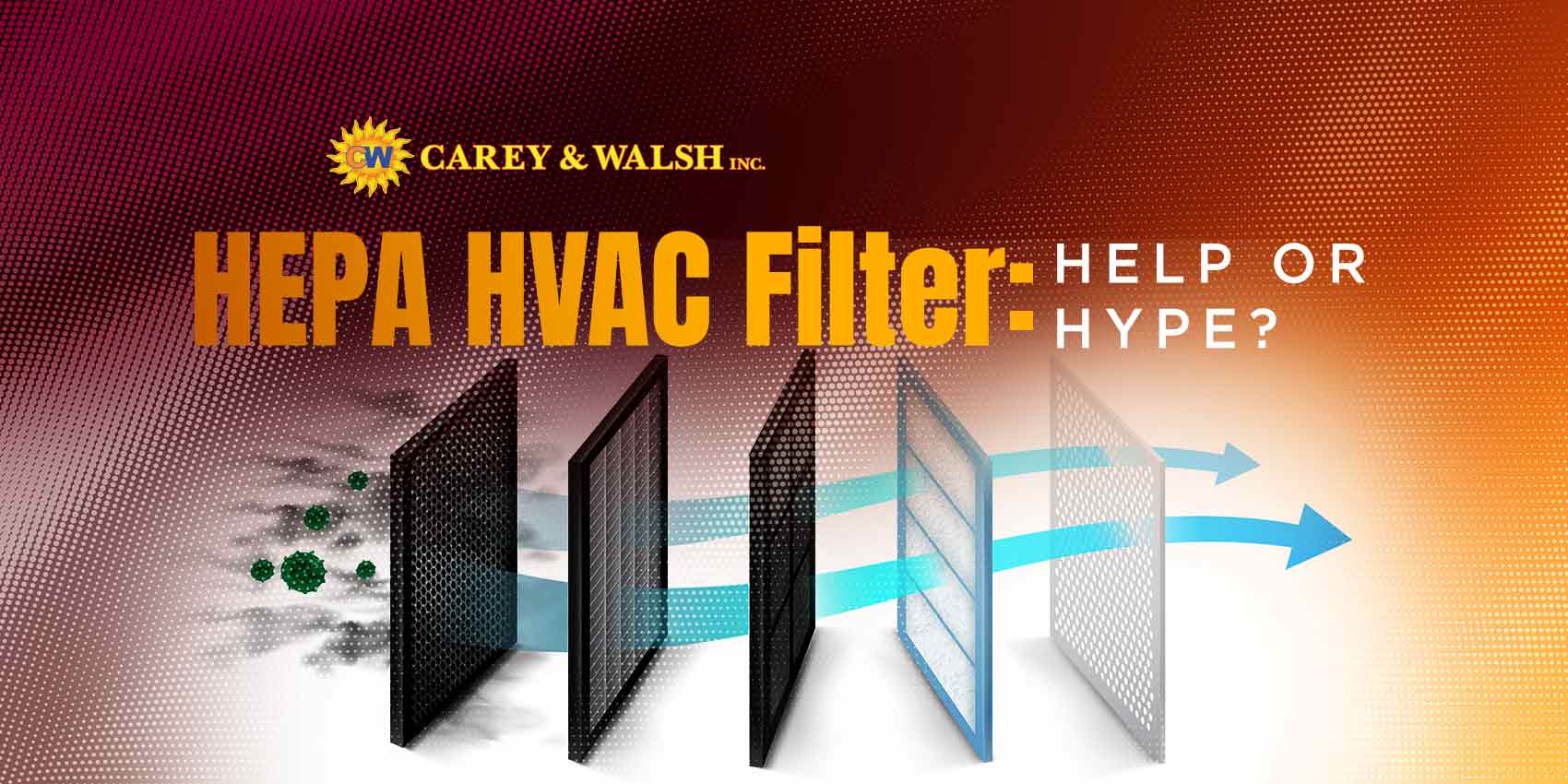
For homeowners and business owners in Briarcliff Manor, NY, understanding the importance of air and furnace filters is crucial for maintaining indoor air quality and system efficiency. This expert guide will delve into everything you need to know about selecting, maintaining, and replacing your filters.
Understanding Air Filters and Their Importance
Air filters play a pivotal role in your HVAC system by trapping dust, pollen, pet dander, and other airborne particles. This not only helps to improve the air quality within your home or business but also protects the HVAC system from dust buildup, ensuring it runs efficiently.
Types of Air Filters: An In-Depth Look
Fiberglass Filters
Description: Fiberglass filters are the most basic and economical option available. They are made from layered fiberglass fibers spun together and are typically housed in a metal grating to support the frame.
Pros: The primary advantage of fiberglass filters is their affordability. They are a low-cost option for filtering out large particles like dust and lint from the air.
Cons: Their simplicity comes with a downside. Fiberglass filters have a lower MERV rating, usually between 1 and 4, meaning they are less effective at trapping smaller particles such as pollen, mold spores, and pet dander. Additionally, they need to be replaced more frequently — usually every 30 days — to maintain efficiency and air flow.
Best For: Individuals looking for a cost-effective solution and without serious allergy or air quality concerns.
Pleated Filters
Description: Pleated air filters are made from polyester fabrics or cotton folds, which increase the surface area for trapping particles. The pleats create a larger filtration surface within the same frame size as a fiberglass filter.
Pros: These filters offer better filtration by trapping smaller particles, thanks to their increased surface area and higher MERV ratings, typically between 5 and 13. They are more effective at improving indoor air quality by capturing mold spores, pollen, and some bacteria.
Cons: Pleated filters are more expensive than fiberglass options and can put more strain on the HVAC system due to their denser material, which requires the system to work harder to pull air through.
Best For: Homes and businesses looking to balance cost with improved air quality, especially in environments where allergies or respiratory concerns are present.
HEPA Filters
Description: High Efficiency Particulate Air (HEPA) filters are among the most efficient filters available for residential use. They can trap at least 99.97% of airborne particles as small as 0.3 microns, including pollen, dust mites, mold spores, and tobacco smoke.
Pros: HEPA filters offer superior air purification, making them ideal for individuals with allergies, asthma, or other respiratory conditions. They significantly reduce the number of airborne allergens and pollutants in indoor environments.
Cons: The high filtration efficiency comes with a higher price tag. Additionally, not all residential HVAC systems are designed to accommodate the dense material of HEPA filters, which may restrict airflow and strain the system if not properly matched.
Best For: Those with significant health concerns related to air quality or in settings where air purity is paramount, such as hospitals and laboratories. It’s crucial to ensure your HVAC system can support HEPA filters without compromising performance.
Washable Air Filters
Description: Washable or reusable air filters are made from materials that can be cleaned and reused multiple times. They are more environmentally friendly and can be more cost-effective over time.
Pros: The main advantage is their reusability, which reduces waste and can save money in the long run. They typically have a MERV rating between 4 and 8, offering moderate filtration efficiency.
Cons: Washable filters require regular cleaning to maintain their efficiency, which can be a drawback for those looking for low-maintenance options. If not properly maintained, their performance can degrade over time.
Best For: Environmentally conscious consumers and those looking to minimize ongoing costs. Ideal for individuals committed to regular maintenance and cleaning of their HVAC components.
Understanding MERV Ratings: A Closer Look
The Minimum Efficiency Reporting Value (MERV) rating is a critical factor to consider when selecting an air filter for your HVAC system. It provides a standard scale to evaluate and compare the effectiveness of different filters based on their ability to capture airborne particles of varying sizes. Here’s a deeper dive into what MERV ratings mean and how they can guide you in choosing the right filter for your needs.
What MERV Ratings Measure
MERV ratings measure a filter’s efficiency in trapping particles ranging in size from 0.3 to 10 microns. A micron is a unit of measurement equal to one millionth of a meter, and to put that into perspective, a human hair is about 70 microns in diameter. The MERV rating system assesses how well a filter can capture particles like pollen, dust mites, mold spores, pet dander, bacteria, and smoke.
The MERV Rating Scale
The MERV scale ranges from 1 to 16 for residential and commercial settings, with higher numbers indicating a filter’s ability to capture smaller particles more effectively. Here’s a breakdown of what different MERV ratings mean:
MERV 1-4: These filters provide minimal filtration, capturing large particles such as dust balls, sanding dust, and spray paint dust. They are typically used in residential window AC units.
MERV 5-8: Ideal for residential homes, these filters can capture mold spores, dust mite debris, and cat and dog dander. They strike a balance between improving indoor air quality and maintaining airflow within the system.
MERV 9-12: These filters are suited for homeowners desiring higher indoor air quality. They can capture finer particles, including legionella, humidifier dust, lead dust, and auto emissions.
MERV 13-16: Often used in hospital and general surgery settings, these high-efficiency filters capture bacteria, tobacco smoke, and sneeze nuclei. While they offer superior air purification, they may not be compatible with all residential HVAC systems due to their density and airflow restriction.
Choosing the Right MERV Rating for Your Home
For most residential settings, a MERV rating of 7 to 12 is adequate. This range offers a good balance between filtering capabilities and maintaining the efficiency of your HVAC system. Filters within this range can capture most common allergens and particles without significantly restricting airflow. However, individual needs may vary:
Allergy Sufferers: If someone in your household suffers from allergies or asthma, consider filters on the higher end of the recommended range (MERV 10-12) to capture finer particles that can trigger respiratory issues.
Pets in the Home: Homes with pets might benefit from filters with a MERV rating of 8 or higher to effectively capture pet dander and hair.
Concerns About Illness: For those particularly concerned about illness or bacteria, and if the HVAC system can support it, opting for a filter with a MERV rating closer to 13 might be beneficial, though it’s essential to consult with an HVAC professional to ensure compatibility.
Impact on HVAC Performance

While a higher MERV rating means better filtration, it’s crucial to consider your HVAC system’s capabilities. High-MERV filters can restrict airflow, making your system work harder and potentially leading to increased energy costs and wear on the system. Always check with an HVAC professional or the system’s manufacturer to determine the highest MERV rating your system can handle without compromising performance.
Understanding MERV ratings and their implications on air quality and HVAC efficiency is key to making an informed decision about your home’s air filtration needs. By choosing a filter with the appropriate MERV rating, you can enhance your indoor air quality without sacrificing your system’s performance.
Maintenance Tips
Regular Checks: Inspect your current air filter every 30 days, especially during high usage months.
Replacement Schedule: Replace disposable filters every 90 days, or as recommended by the manufacturer.
Cleaning: For washable filters, follow the manufacturer’s instructions for cleaning to ensure optimal performance.
Installation Tips
Correct Orientation: Ensure the filter is installed in the correct direction. Look for the arrow on the frame indicating airflow direction.
Secure Fit: Make sure you have a nominal size filter that fits securely to prevent air from bypassing it.

Common Questions Answered
How often should I change my filter? This can vary based on the type of filter, your usage, and if you have pets or allergies. Most air filters should be changed every 90 days for standard use.
Can a better furnace filter improve my HVAC system’s efficiency? Yes, replacement filters with an appropriate MERV rating for your system can improve efficiency and air quality, saving on energy bills.
🌟 Ready to breathe easier and boost your HVAC system’s efficiency?
Contact Carey & Walsh, Inc. today! Our team of experts is ready to help you select the perfect air and furnace filters for your home or business in Briarcliff Manor, NY. Elevate your indoor air quality and enjoy a healthier, more comfortable environment. We also offer heating and cooling installation, repair, and maintenance. Schedule your consultation now and take the first step towards cleaner air! 🏠💼



